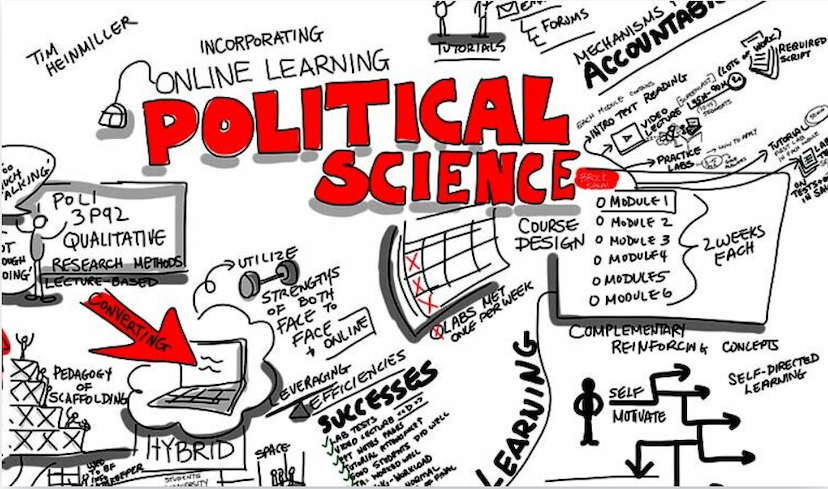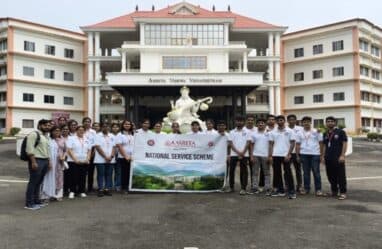15 Days UGC NET Political Science Revision: Master Key Topics

As the UGC NET Political Science exam looms just 5 days away, candidates are entering the final leg of their preparation journey. In these remaining days, the focus narrows down to conquering the most crucial topics and questions that can significantly impact their performance.
This phase is a delicate balance between targeted revision and strategic practice, ensuring that candidates are not only familiar with key concepts but are also adept at handling the types of questions that may appear in the examination. This guide has served as a compass in these last 15 days, navigating through the most important topics and questions to ensure that candidates step into the examination hall with a well-rounded mastery of political science.

Also, read Expert Analysis Of UGC NET 2023 Paper 1

UGC NET Political Science Revision: Important Topics Unit-wise
Candidates preparing for the UGC NET Political Science exam need to focus on key topics to plan their study strategy effectively. Here are the important topics from each of the 10 units:
1. Political Theory:

-
- Liberty, Equality, Justice, Rights, Democracy, Power, and Citizenship
- Liberalism, Conservatism, Socialism, Marxism, Feminism, Ecologism, Multiculturalism, and Postmodernism
2. Political Thought:
-
- Confucius, Plato, Aristotle, Machiavelli, Hobbes, Locke, and Rousseau
- Hegel, Mary Wollstonecraft, John Stuart Mill, Karl Marx, Gramsci, Hannah Arendt, Frantz Fanon, Mao Zedong, John Rawls
3. Indian Political Thought:


5. International Relations:
-
- Approaches to the study of International relations, Conflict and Peace
- United Nations, Political Economy of IR, Regional Organizations, Contemporary Challenges
6. India’s Foreign Policy:
-
- Perspectives on India’s Foreign Policy, Continuity and Change
- India’s relations with major powers and India’s Engagement with the multipolar world
- India’s relations with the neighbourhood, India’s Negotiation Strategies, Contemporary challenges
7. Political Institutions in India:
-
- Making of the Indian Constitution, Constituent Assembly, and Philosophy of the Constitution
- Constitutionalism in India, Union Executive, Union Parliament
- Executive and Legislature in the States, Federalism in India, Electoral Process, Election Commission of India
- Constitutional and Statutory Bodies, Local Government Institutions
8. Political Processes in India:

-
- State, Economy and Development, Process of Globalization, Identity Politics
- Social Movements, Civil Society Groups, and Regionalization of Indian Politics
- Gender and Politics in India, Ideology and Social Basis of Political Parties, Electoral Politics
9. Public Administration:
-
- Public Administration theories and concepts, Comparative Public Administration
- New Public Management: Theories and Principles of Organization
- Managing the organization, Organizational Communication
- Managing Conflict in the Organization: Management by Objectives
10. Governance and Public Policy in India:

- Refer to Previous Year’s Question Papers:
- Go through UGC NET previous year’s question papers to identify question trends.
- Note questions that have been repeated multiple times in the exam.
- Marks Weightage:
- Refer to the topic-wise marks weightage for each section.
- Topics with higher marks are likely to have more questions in the exam.
Benefits of Solving UGC NET Political Science Important Questions: Solving important questions for UGC NET Political Science offers several benefits:
- Insight into Exam Pattern:
- Provides insight into the exam pattern and the types of questions likely to be asked.
- Efficient Revision:
- Facilitates focused revision as it covers the most important topics in the UGC NET Political Science syllabus.
- Confidence Boost:
- Boosts confidence and improves speed and accuracy while attempting the exam.
- Scoring Well:
- Enhances the chances of scoring well above the cut-offs.
UGC NET Exam Pattern: The UGC NET exam comprises two papers. Paper 1 is based on General Paper on Teaching & Research Aptitude, while Paper 2 is based on the subject chosen by the candidate. Key details of the exam pattern include:
- Each question in Paper 1 carries 2 marks.
- Paper 2 has 100 questions, each carrying 2 marks.
- The total duration for Paper 2 is 2 hours.
- There is no negative marking in Paper 2.
In conclusion, candidates preparing for the UGC NET Political Science exam should focus on key topics, practice important questions, and refer to reliable notes for effective preparation. Following a strategic approach based on past trends and exam patterns will contribute to success in the examination
End Note
In the crucial final stretch before the UGC NET Political Science exam, these last 15 days are invaluable. It’s the peak of the journey towards mastery, where each focused minute of revision and practice can make a substantial difference. As candidates delve into the guide’s important topics and questions, maintaining a balance between depth of understanding and efficient time management is essential. Confidence is key, and these final days are an opportunity to showcase weeks or months of dedicated preparation. With a strategic approach, a calm mindset, and a thorough understanding of critical concepts, candidates are poised to perform at their best. Best wishes to all aspirants in this final revision phase for UGC NET Political Science!






